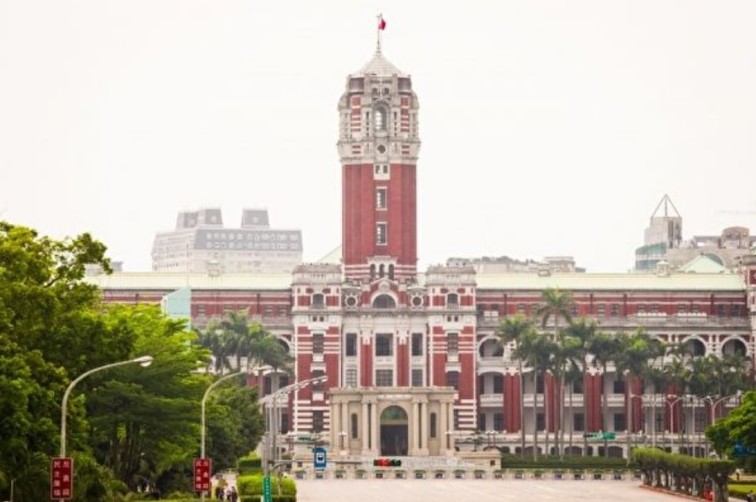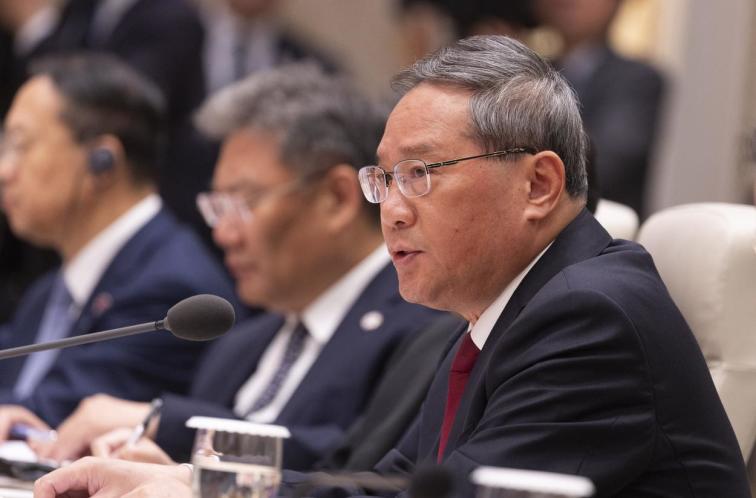On October 13, 2022, Peng Lifafa (Peng Zaizhou) displayed a massive banner on the Sitong Bridge in Beijing that stated, "No nucleic acid tests, we want to eat; no Cultural Revolution, we want reform; no lockdowns, we want freedom; no leaders, we want ballots; no lies, we want dignity; we want to be citizens, not slaves." This act sent shockwaves both domestically and internationally. (Internet image)
[People News] Following the "Sitong Bridge Incident" in Beijing, the CCP has grown increasingly fearful that the public might rally in response to this event and attempt to overthrow the government. Consequently, they mandated that guards be stationed at bridges throughout Beijing, and recent reports suggest that these guards have been replaced by armed police. Commentator Yuan Bin noted that this reflects the CCP's profound fear of the populace, to the extent that it has lost its sanity; such a regime is unlikely to endure.
Yuan Bin remarked: "After the CCP was startled by the 'Sitong Bridge Incident,' the bridges in Beijing have transformed in their eyes from ordinary structures into 'high grounds of thought,' 'gaps in the firewall,' and 'cracks under tyranny.' To avert similar occurrences, the authorities have deployed numerous 'bridge guards' who feign cleaning during the day and hide in corners at night, vigilantly watching over every concrete slab, terrified that another individual like Zhang Lifafa, Wang Lifafa, or Li Lifafa might emerge, hanging slogans on the bridge and addressing the public.
Yuan Bin remarked that the authorities' decision to deploy 'bridge watchers' was already quite shocking, but what is even more surprising is that these 'bridge watchers' have now been upgraded to military and police forces—armed police standing guard, public security officers patrolling, and strict surveillance both above and below the bridge, as if it were not just an ordinary overpass, but a military restricted zone. For the people of Beijing, traversing the bridge feels akin to entering a palace, with every step scrutinised for loyalty by someone's gaze, and every breath seemingly tagged with the risk of 'potential incitement' by the regime.
Yuan Bin pointed out that a government that loudly proclaims to represent the people is afraid of citizens hanging banners on the overpass; a regime that claims to enjoy popular support fears the people speaking the truth on the overpass, to the point that it has turned the overpass into the front line of a 'regime defence war.' Some might say this is a case of 'every tree and bush being an enemy.' In my opinion, this goes beyond that; it is a clear sign of mental instability, reflecting the extent of the Chinese Communist Party's fear of the populace and the deep-seated weakness within its core! In its efforts to market itself to the world, the CCP often emphasises 'Chinese characteristics.' The shift from 'bridge watchers' to military and police can be seen as the latest iteration of 'Chinese characteristics.'
Yuan Bin concluded by questioning whether a regime that feels the need to deploy military and police to strictly guard an overpass can still be considered a normal regime. Can such a regime endure in the long run?
On October 13, 2022, Peng Lifa (Peng Zaizhou) displayed two large banners on the Sitong Bridge in Beijing. The longer and larger banner proclaimed: 'No nucleic acid tests, we want food; No Cultural Revolution, we want reform; No lockdowns, we want freedom; No leaders, we want ballots; No lies, we want dignity; We want to be citizens, not slaves.' The second banner read, 'Strike classes, strike work, remove the dictatorial traitor Xi Jinping.' This incident sent shockwaves both within China and abroad. After Peng Lifa's arrest, his whereabouts remained unknown until July 8 of this year, when an X user focused on human rights in China, known as 'Yesterday,' revealed that after being secretly detained for over two years, Peng Lifa was sentenced to nine years in prison for multiple offenses, including 'picking quarrels and provoking trouble' and 'arson,' and was sent to prison two months ago to serve his sentence.
In reaction, some overseas netizens remarked: 'Arson? The charge of 'picking quarrels and provoking trouble' is already ridiculous enough, and now they even add 'arson.' He ignited some flammable materials to draw attention and create a visual effect (like thick smoke), without causing any fire spread or actual damage to property, and certainly did not endanger anyone's life. By this reasoning, all smokers could be charged with arson. The judgment does not dare to mention the content of the two banners he displayed; what are they afraid of?'
Following the events of October 2022, commentator Jiang Feng remarked that Peng Lifa had called for a boycott of classes, strikes, and a nationwide whistleblowing campaign to remove the dictator. He emphasised the importance of spreading this message, as collective effort can amplify impact. Such self-awareness and initiative can help lift the spirits of the Chinese people and guide them toward real change in their national destiny, rather than getting lost in the shaky illusions of elderly figures attempting to reverse the tide. The vast land of China is not short of determined individuals like Jing Ke, who once sought to assassinate the King of Qin; what it lacks is a response from the masses. △











News magazine bootstrap themes!
I like this themes, fast loading and look profesional
Thank you Carlos!
You're welcome!
Please support me with give positive rating!
Yes Sure!